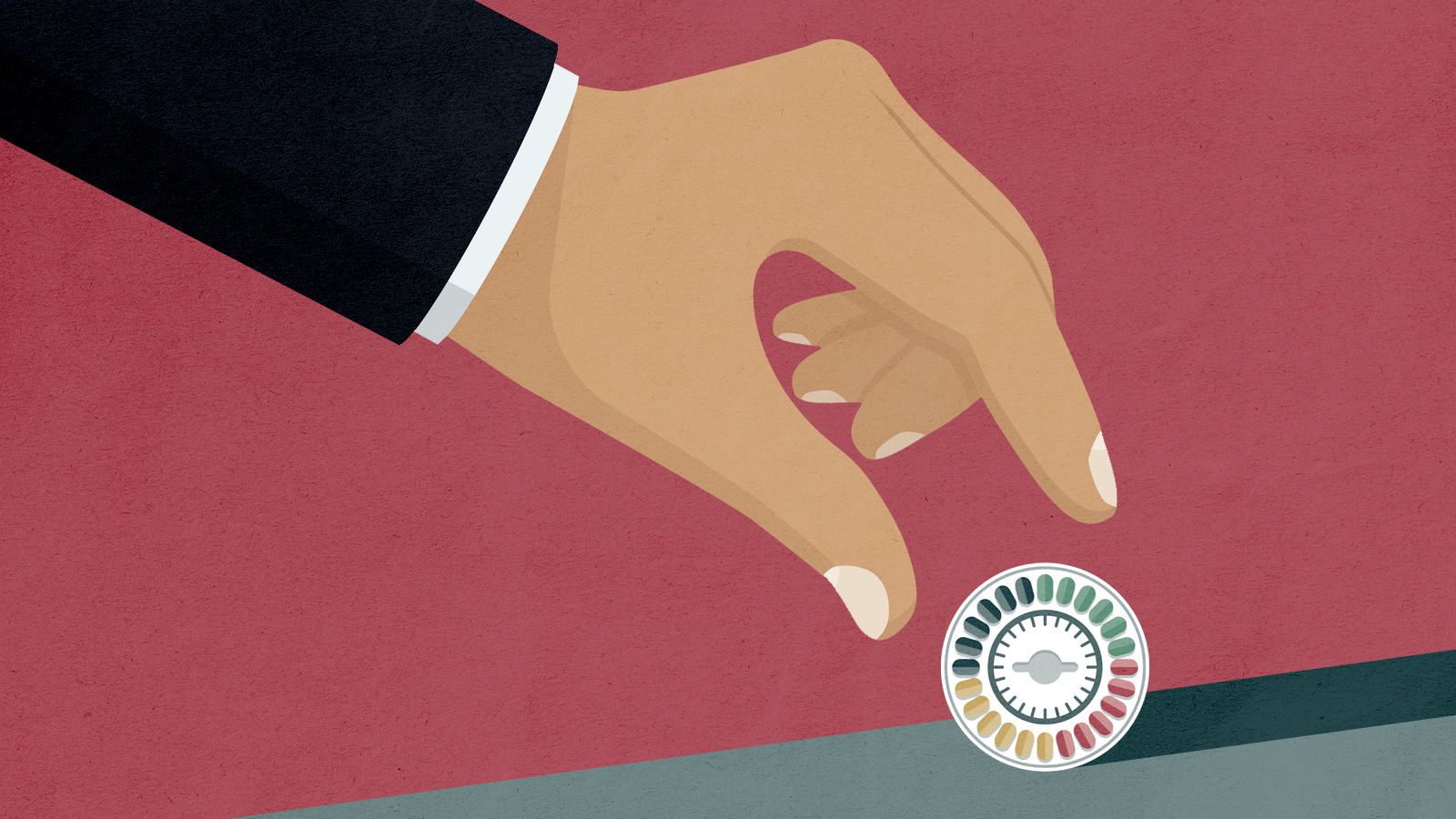If Roe v. Wade falls, is birth control next?


A free daily email with the biggest news stories of the day – and the best features from TheWeek.com
You are now subscribed
Your newsletter sign-up was successful
Are Republicans coming for your birth control pills?
Even in an era where abortion rights are looking shaky, it might seem alarmist to suggest so. But last week three GOP candidates to be Michigan's next attorney general said they believed that Griswold v. Connecticut — the 1965 Supreme Court decision that said contraceptive purchases were shielded by a right to privacy — was wrongly decided.
"This case, much like Roe v. Wade, I believe, was wrongly decided because it was an issue that trampled upon states' rights," said former Michigan House Speaker Tom Leonard. "It was an issue that should have been left up to the states."
The Week
Escape your echo chamber. Get the facts behind the news, plus analysis from multiple perspectives.

Sign up for The Week's Free Newsletters
From our morning news briefing to a weekly Good News Newsletter, get the best of The Week delivered directly to your inbox.
From our morning news briefing to a weekly Good News Newsletter, get the best of The Week delivered directly to your inbox.
Yikes.
Two of the candidates (including Leonard) walked back the issue this week, saying they have no interest in actually banning birth control. And let's be fair: Most Republican politicians probably don't want to poke that particular hornet's nest — vast majorities of Americans routinely say they think that birth control is both important and morally acceptable. We're not living in the world of 1965 anymore.
It's also true, though, that Griswold has long been a bete noire of conservatives, who see it as a foundation for the Supreme Court's later Roe v. Wade ruling guaranteeing abortion rights. "It is not a very long leap at all from consequence-free sex as a constitutional right, and birth as a burden to be avoided when one so chooses, to the epidemic of abortion in which we now find ourselves," National Review's Declan Leary wrote in 2019. A decade ago, GOP presidential candidates Mitt Romney and Rick Santorum both criticized the ruling during a debate. That same year, the late Justice Antonin Scalia declared that "there is no right to privacy."
Indeed, the right to privacy isn't explicitly written in the Constitution. Instead, Griswold inferred it (in part) from the Ninth Amendment — which sensibly but somewhat ironically spells out that not all rights are spelled out in the Constitution. So it's good to note that President Biden is very focused on Ninth Amendment jurisprudence as he contemplates appointing a replacement for Supreme Court Justice Stephen Breyer. "All the amendments mean something," Biden said earlier this month, "including the Ninth Amendment."
A free daily email with the biggest news stories of the day – and the best features from TheWeek.com
Whether the current Supreme Court agrees is an open question. The recent ascendance of the court's 6-3 conservative supermajority means a lot of seemingly settled precedents — on voting rights, religious freedom and other contentious issues — might actually be unsettled. It seems like everything is up for grabs. Does that list include the ruling that guaranteed the right to birth control? We might find out sooner than we like.
Joel Mathis is a writer with 30 years of newspaper and online journalism experience. His work also regularly appears in National Geographic and The Kansas City Star. His awards include best online commentary at the Online News Association and (twice) at the City and Regional Magazine Association.
-
 Antonia Romeo and Whitehall’s women problem
Antonia Romeo and Whitehall’s women problemThe Explainer Before her appointment as cabinet secretary, commentators said hostile briefings and vetting concerns were evidence of ‘sexist, misogynistic culture’ in No. 10
-
 Local elections 2026: where are they and who is expected to win?
Local elections 2026: where are they and who is expected to win?The Explainer Labour is braced for heavy losses and U-turn on postponing some council elections hasn’t helped the party’s prospects
-
 6 of the world’s most accessible destinations
6 of the world’s most accessible destinationsThe Week Recommends Experience all of Berlin, Singapore and Sydney
-
 Epstein files topple law CEO, roil UK government
Epstein files topple law CEO, roil UK governmentSpeed Read Peter Mandelson, Britain’s former ambassador to the US, is caught up in the scandal
-
 Iran and US prepare to meet after skirmishes
Iran and US prepare to meet after skirmishesSpeed Read The incident comes amid heightened tensions in the Middle East
-
 Israel retrieves final hostage’s body from Gaza
Israel retrieves final hostage’s body from GazaSpeed Read The 24-year-old police officer was killed during the initial Hamas attack
-
 China’s Xi targets top general in growing purge
China’s Xi targets top general in growing purgeSpeed Read Zhang Youxia is being investigated over ‘grave violations’ of the law
-
 Panama and Canada are negotiating over a crucial copper mine
Panama and Canada are negotiating over a crucial copper mineIn the Spotlight Panama is set to make a final decision on the mine this summer
-
 Why Greenland’s natural resources are nearly impossible to mine
Why Greenland’s natural resources are nearly impossible to mineThe Explainer The country’s natural landscape makes the task extremely difficult
-
 Iran cuts internet as protests escalate
Iran cuts internet as protests escalateSpeed Reada Government buildings across the country have been set on fire
-
 US nabs ‘shadow’ tanker claimed by Russia
US nabs ‘shadow’ tanker claimed by RussiaSpeed Read The ship was one of two vessels seized by the US military
